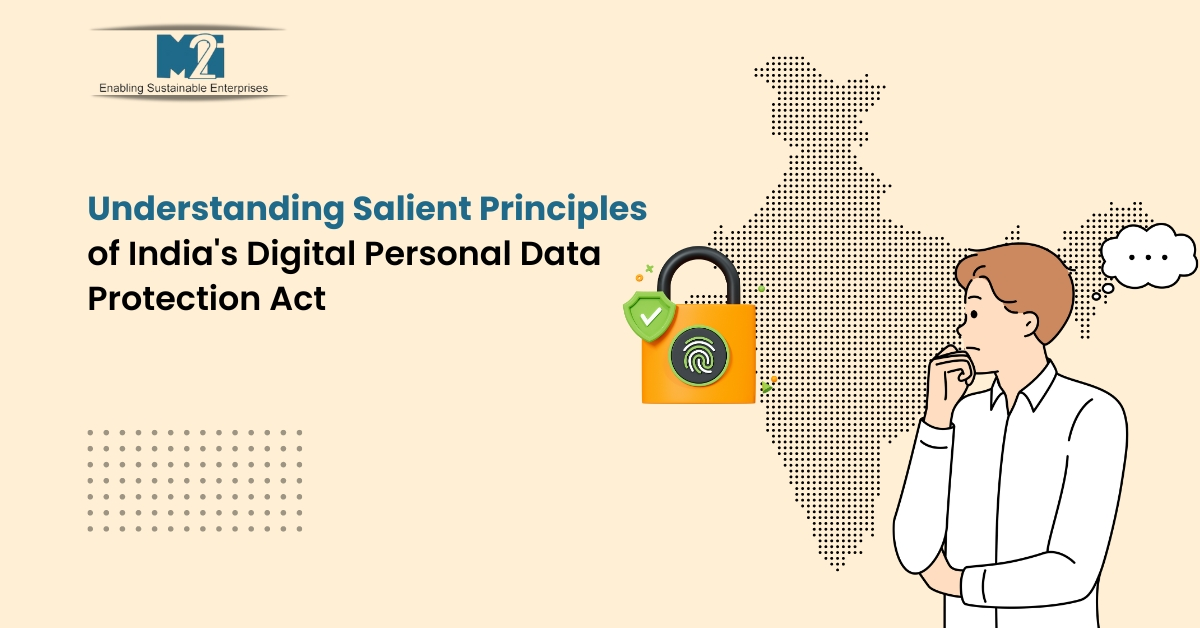
Understanding Salient Principles of India's Digital Personal Data Protection Act
The digital era is marked by the continuous exchange of personal data, necessitating robust data protection laws. India's recent Digital Personal Data Protection Act is a landmark piece of legislation designed to safeguard personal data. This blog post elucidates the key principles underpinning this progressive Act.
At the heart of the Act is the principle of consented, lawful, and transparent use of personal data. It mandates that personal data can only be processed with the clear consent of the individual, ensuring that the data subject, or Data Principal, is fully aware and agreeable to how their data is used.
The purpose limitation principle further ensures that the use of personal data is confined strictly to the objectives stated at the consent's inception. This means personal data cannot be repurposed without additional, explicit consent from the Data Principal.
In line with the data minimisation principle, only the necessary data required for the specified purpose may be collected. This challenges the 'more is better' data collection ethos and places the onus on data collectors to justify the data they process.
Ensuring data accuracy is another cornerstone, obliging organizations to keep personal data correct and up-to-date. The principle recognizes the dynamic nature of personal data and the need for continual updates and verification.The Act also stipulates storage limitation, which means personal data must be securely stored and only for a period necessary for the purpose it was collected for, after which it should be deleted or anonymized.
Integral to the Act is the enforcement of reasonable security safeguards to protect data against unauthorized access and threats. This principle underscores the importance of cybersecurity measures in the stewardship of personal data.Finally, the principle of accountability is crucial. It enforces entities to be answerable for their handling of personal data through strict adjudication processes and imposes penalties for breaches. This principle ensures that the rights of individuals are not just theoretical but actively enforced.
India's DPDP Act represents a significant step towards reinforcing personal data protection in an increasingly digital world. It aligns with global standards and reflects a deep understanding of the complexities involved in data protection today, promising a more secure digital future for all stakeholders.